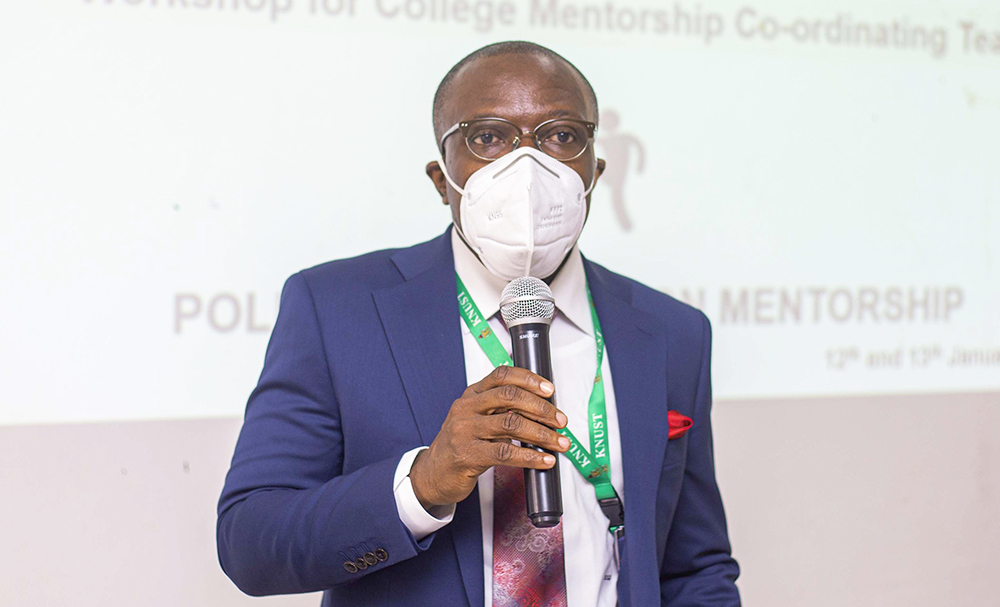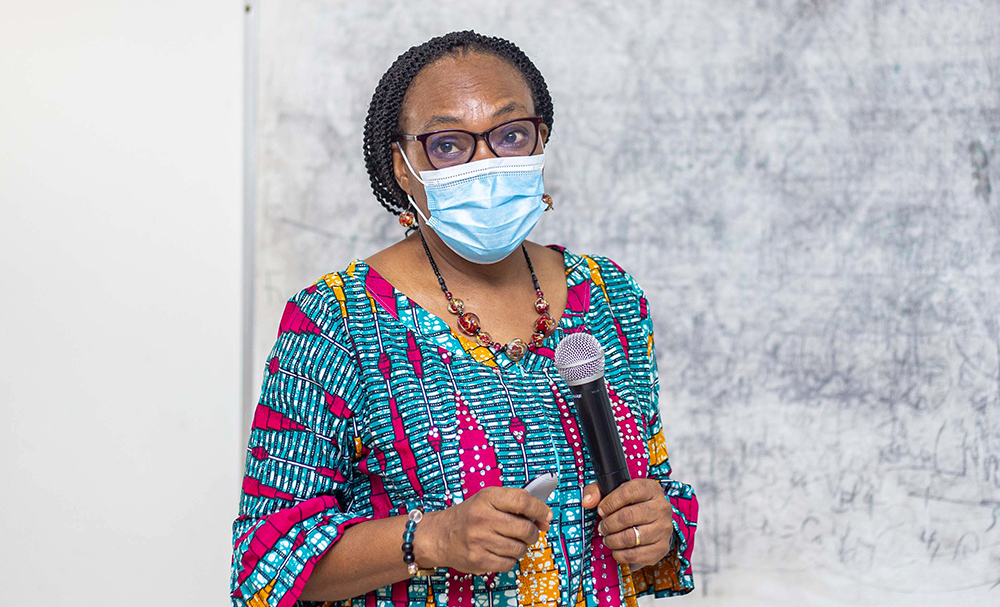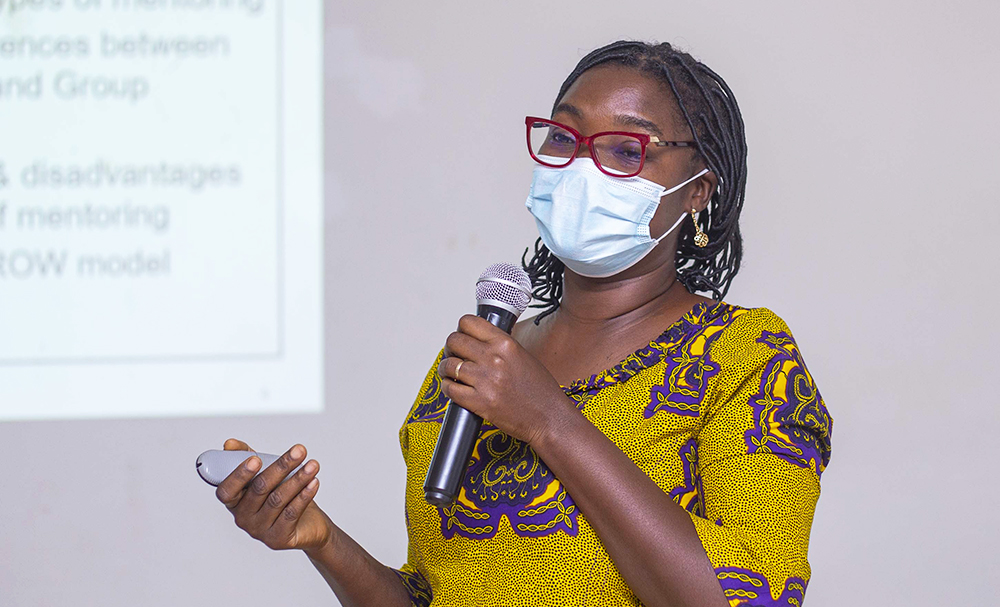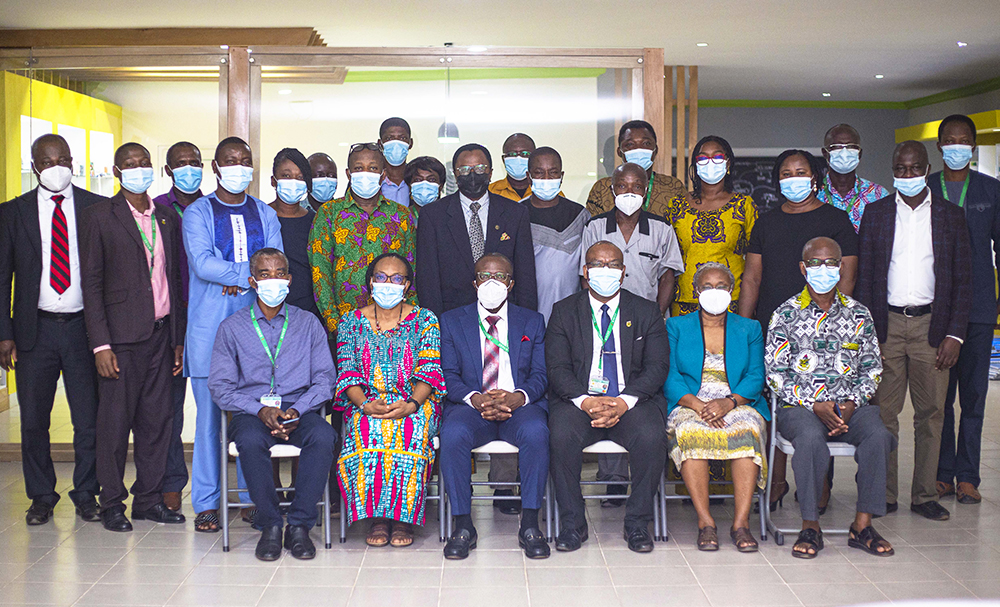As part of the mandate of the Policy Champions Committee to provide Mentorship, Admissions, Recruitment and Ethical Review to staff of the Kwame Nkrumah University of Science and Technology (KNUST), the committee has organised a 2-day physical trainer of trainers’ workshop on Mentorship on 12th and 13th January 2022 at the Faculty of Pharmacy and Pharmaceutical Sciences Conference Room.
In his welcome address, the Pro Vice-Chancellor, Professor Ellis Owusu-Dabo mentioned that KNUST continues to grow in terms of its programmes, student numbers and administrative structures, thus the need to develop its guidance, reference and several policies on all activities as a Science and Technology University. According to Professor Owusu-Dabo, the Mentorship Policy discusses the University’s approach to mentoring, providing mentors and mentees with a framework and practical guidance to support the process.

‘The policy is aimed at providing effective guides for the mentoring of new and inexperienced staff in the University in the areas of teaching, research, administration, community engagement and entrepreneurship training,’ he added.
The Pro Vice-Chancellor commended the Chairperson and members of the committee for the various activities undertaken and for being the most vibrant committee. He further charged participants to contribute their quota, pick some lessons and implement KNUST’s mentorship agenda in the most effective manner.

The Chairperson for the Committee, Professor (Mrs.) Ibok Oduro noted that the purpose of the workshop was to sharpen the skills of all College Mentorship Co-ordinating teams about the concept of mentorship in order to offer the needed technical assistance to mentors and mentees of their respective colleges. She defined ‘Mentorship as a relationship in which a more experienced or more knowledgeable person (the mentor) helps to guide a less experienced or less knowledgeable (mentee)’. Mentorship is based on trust and mutual respect in the sharing of knowledge, understanding and experience.
She added that mentors teach the mentee about a specific issue, coach mentee on a skill, facilitate mentees growth by sharing resources and networks. A mentor also challenges the mentee to move beyond his/her comfort zone, they create a safe learning environment for taking risks and focus on the mentee’s total development.
Professor Oduro outlined the benefits of mentoring for both the mentor and the mentee. She also described the difference between a role model, a sponsor, coaching and mentoring.

Dr. (Mrs.) Vivian E. Boamah, a member of the Committee introduced to participants the ‘Directions in Mentoring Relationships, Types of Mentoring, Differences, Advantages and Disadvantages and the GROW model.’ She noted that without direction, mentoring relationships can lose focus and momentum, thus, a mentor must focus on specific challenges, desist from fixing challenges and avoid assigning ‘homework’.
According to her, trust, safeguarding, confidentiality, empathy, loyalty, truthfulness, integrity and patience are the core characteristics a mentor must possess to achieve a successful mentor-mentee relationship.
Mrs. Akosua M. Amankwah, a member of the Committee in her presentation on ‘Mentoring Session, Monitoring and Evaluation’ stated some tips for making a mentee feel at ease during the first encounter of their session. She advised participants to ask their mentees right questions, apply feedback skills, monitor and evaluate their performance and create a lasting impact by adjusting the process to meet the mentee’s personal strength and pace.
Other facilitators, Professor Clifford Amoako and Dr. David Quansah also allowed participants to share their experiences, analyse various case studies and explore other approaches to mentoring in the areas of teaching, research, community engagement and entrepreneurship training.

















